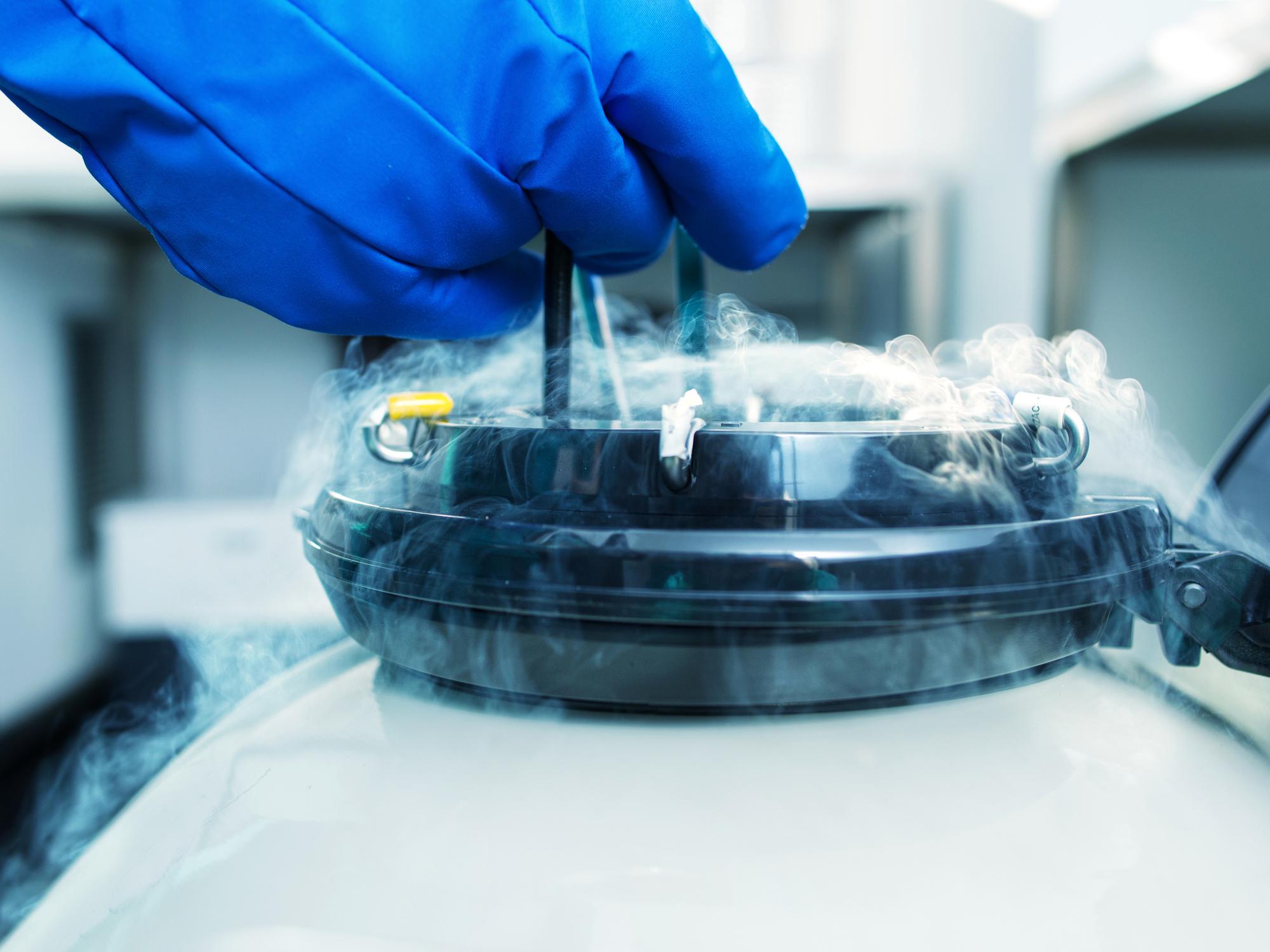Sperm freezing kit could let men preserve their fertility from comfort of own home, study suggests
It was previously thought that specialist equipment and training in cryopreservation needed to preserve fragile sperm cells

Men could use home-freezing kits to put their sperm on ice, ending the need to produce a sample on demand in the uncomfortable surroundings of a fertility clinic.
A viable sample of sperm suitable for in vitro fertilisation (IVF) or banking to safeguard against future infertility can be obtained by members of the public without professional equipment, Spanish researchers have shown.
This could be good news for men with cancer, as well as those who struggle to produce a sample at a clinic or are unable to attend in person on the day of IVF or fertility testing.
It had been thought that specialist equipment and training in cryopreservation is needed to preserve fragile sperm cells in a way that maintains their viability in future.
But identical results could be achieved with a simplified set of instructions and a home freezer, researchers from the Institut Marquès in Barcelona found.
Bárbara Freijomil, who led the research, said this could help men who struggle with ejaculating, as well as those undergoing procedures like IVF, chemotherapy or a vasectomy.
“[Currently] the male is compelled to deliver the sample at an exact moment and, often, also in a predetermined place, usually a clinic. “Many of them experience this as a stressful situation,” she added as they may also have to travel long distances to unfamiliar surroundings.
“Our freezing kit allows the patient to cryopreserve his sperm samples outside the IVF centre in an efficient way, following a simplified cryopreservation protocol.”
The research, presented as a poster at the European Society of Human Reproduction and Embryology (ESHRE) conference in Vienna, analysed semen sampled from 41 men in total.
They each provided either fresh sperm, professionally frozen sperm or sperm preserved with the home-freezing kit.
Between the frozen groups there was no significant difference in sperm shape, swimming ability, or DNA damage - which can pass on mutations or increase the risk of miscarriage.
Donors would not be able to home-freeze their sperm in a domestic freezer long term as it requires a consistent temperature, typically below -130C, however it would suffice for the initial preservation to send a sample in.
"A fertility clinic is the most unsexy environment there can be,” said fertility expert Professor Allan Pacey of the University of Sheffield. "At my clinic in Sheffield trying to get a man to come and have his sperm tested was horrendous, even though we had nice magazines and lovely staff.”
He said there would also be significant benefit for cancer patients “stuck in hospitals all over the country” but this would require a law change as currently the UK only allows sperm to be collected for future fertilisation at a licensed clinic.
“Technically, legally, if your intent is to ship it to a sperm bank, the moment you add the freezing agent and put it next to your peas, you would be committing an offence,” he added.
Join our commenting forum
Join thought-provoking conversations, follow other Independent readers and see their replies
0Comments